'A Delightful Age'
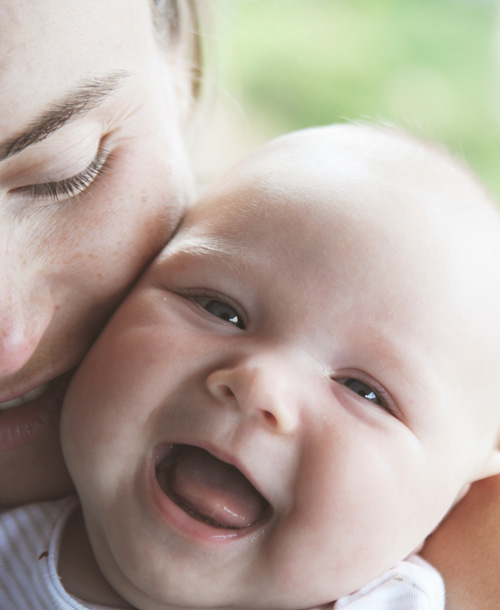
At 6 months, your baby only recently mastered head control, but by 9 months, he could be taking his first steps. “This is such a delightful age,” says Dr. Jack Maypole, pediatrician at Boston Medical Center and member of the Educational Advisory Board for The Goddard School for early education. “You see an explosive progression in interaction, and for many parents this is their favorite age.”
Here’s what to expect as your baby transitions from infant to almost-toddler.
Crawling
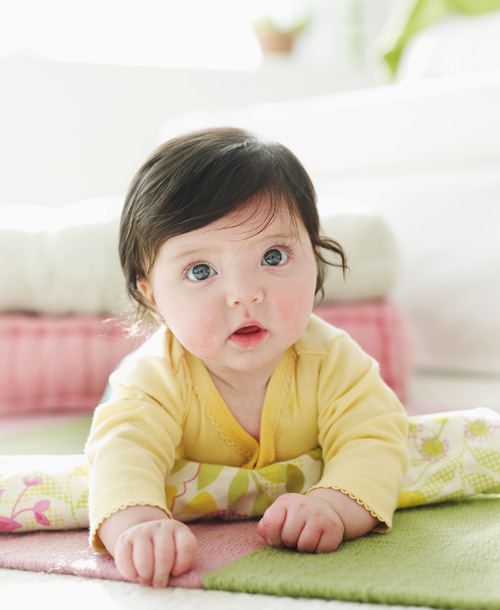
Gross motor movement is the biggest and most visible change your baby experiences in middle infancy. “Motor control goes from head to toe,” explains Dr. Joshua Evans, pediatrician at DMC Children’s Hospital of Michigan. "It starts with head control by 6 months, but by 9 months you’re thinking about walking.” Somewhere between 7 and 10 months, most babies start crawling, and by 9 months, many are pulling up to stand.
Showing Strength on Both Sides

As your baby becomes more active, pay attention to whether she’s using both sides of her body equally. "You want to see symmetric movements,” says Maypole. “The baby should be equally strong on both sides.” If your baby only uses one hand—if she reaches across with her right hand to pick up something on her left side—mention it to your pediatrician. At this age, she shouldn’t have a preference for either side.
Coordinating With Both Hands

In addition to using both hands independently, your baby will soon learn to coordinate two hands at once. “They’re able to grab objects and pass them hand to hand,” says Maypole. Your baby can also grip toys more securely with the whole hand, but he doesn’t have much fine motor control yet. Pincer grasp—the ability to pick up small objects between the thumb and forefinger—won’t come till around his first birthday.
Putting Objects in Their Mouths
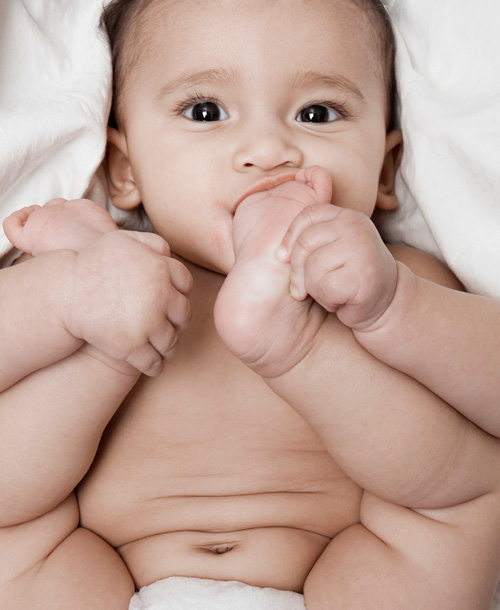
With all that practice picking up toys and other objects, it won’t be long before your baby reaches another milestone: putting objects in her mouth. “Parents sometimes think this means the child is hungry or teething,” says Evans, “but putting things in their mouths is part of normal development.” Because babies’ sight and hearing are still developing, they prefer to explore their environment through more basic senses like touch and taste.
Showing Signs of Personality
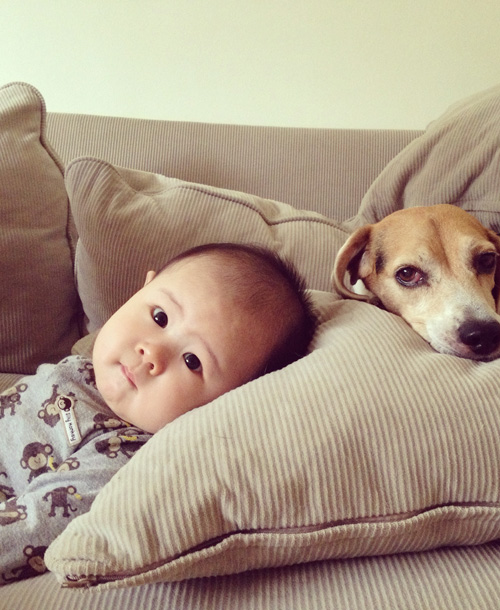
Your baby’s social and linguistic development is also exploding. By 9 months, if not sooner, you’ll have a good idea of your baby’s temperament and personality. “Parents can really peg a child’s personality by this time,” says Maypole. “You’re starting to meet the person they’re becoming.” Your baby will express clear preferences about how he likes to interact, giving you a clue as to whether he’s reserved or outgoing, laid-back or intense.
Photo via instagram.com/bubsoap
Talking With You
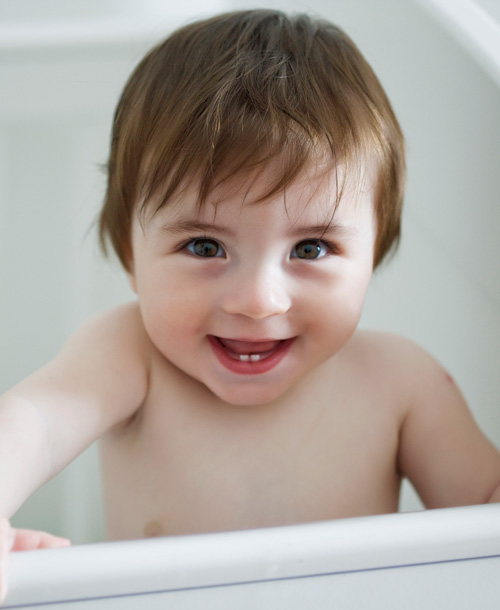
You can’t have a real conversation with your baby yet—but you might sometimes feel like you are. “You’ll start to get repetitive phrases and sounds,” says Evans, “babbling instead of vocalizing.” Your baby will probably “talk” to you with a stream of consonants and vowels that imitates the tone and inflection of a real conversation. Respond to her as if she’s really talking, and you can have an extensive “conversation” that teaches her patterns of language and interaction. Plus, says Maypole, “It’s a great party trick.”
Showing Empathy
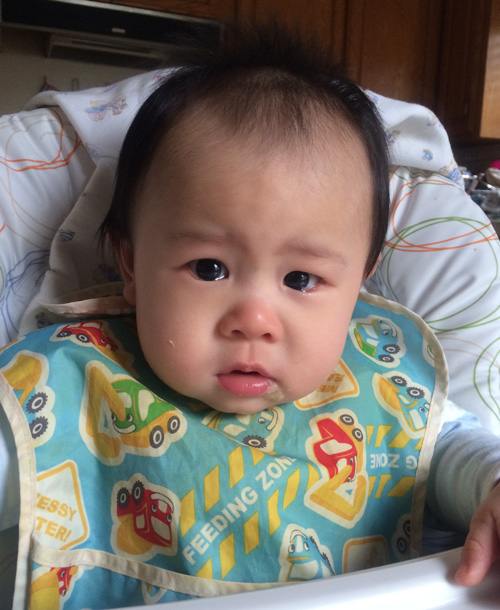
Your baby will also start to react to other people’s feelings and emotions as he develops the beginnings of empathy. “Increasingly, you’ll see them respond to other’s emotions,” says Maypole. “If a sibling is crying, they’ll empathetically cry as well.” Encourage your baby’s empathy by talking about emotions. Describing what he’s feeling will help him start to build a foundation for the vocabulary of emotions and empathy.
Photo via instagram.com/bubsoap
Connecting to Positive Emotions
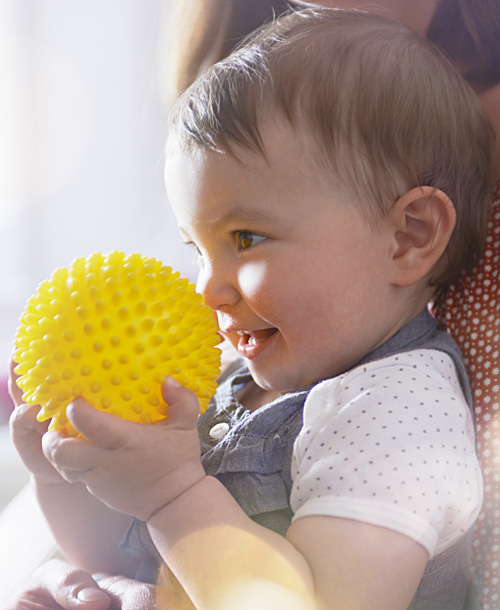
Your baby should start to respond to other people’s positive emotions as well. “They should display facial movements and gestures that are appropriate to a social situation,” says Maypole. When you smile at your baby, she’ll smile back; if you play peekaboo, she’ll laugh. “One important thing to look for is connectedness,” adds Maypole. “We want to see the baby connecting and interacting with others.”
Getting Anxious Around 'Strangers'
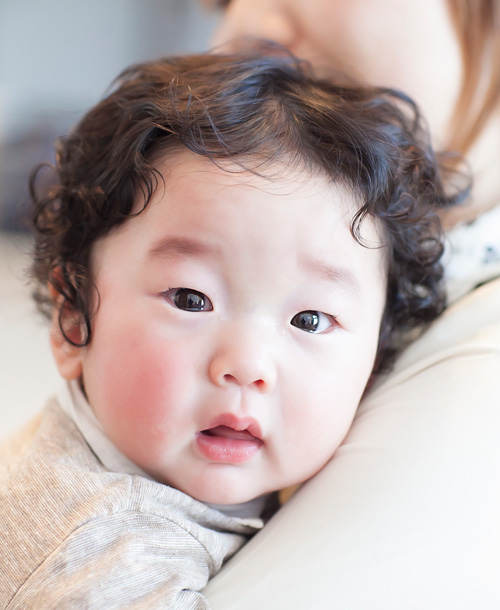
The most important connection to your baby right now is his connection with you. “Around 6 months is when they’re able to distinguish whether a person is familiar,” says Evans. “This is where classic stranger anxiety starts to develop.” A baby who used to be happy with a babysitter might cry now when mom leaves. And anyone your baby doesn’t see regularly is likely to get the stranger treatment, which can sometimes mean hurt feelings for long-distance relatives.
Possible Red Flags

You are the best judge of whether your baby’s development is on track. “Every time you play with your child, you see how he reacts to you and the environment,” says Evans. That’s why you’ll probably be the first to notice if he’s not meeting milestones. Adds Maypole, “Sometimes parents have an intuition that a child’s development isn’t progressing at the same rate as other kids. If you have that sense, talk to your primary care provider.” Normal development falls within a wide range, but if your child is delayed, then early intervention is key to helping him develop his full potential.



